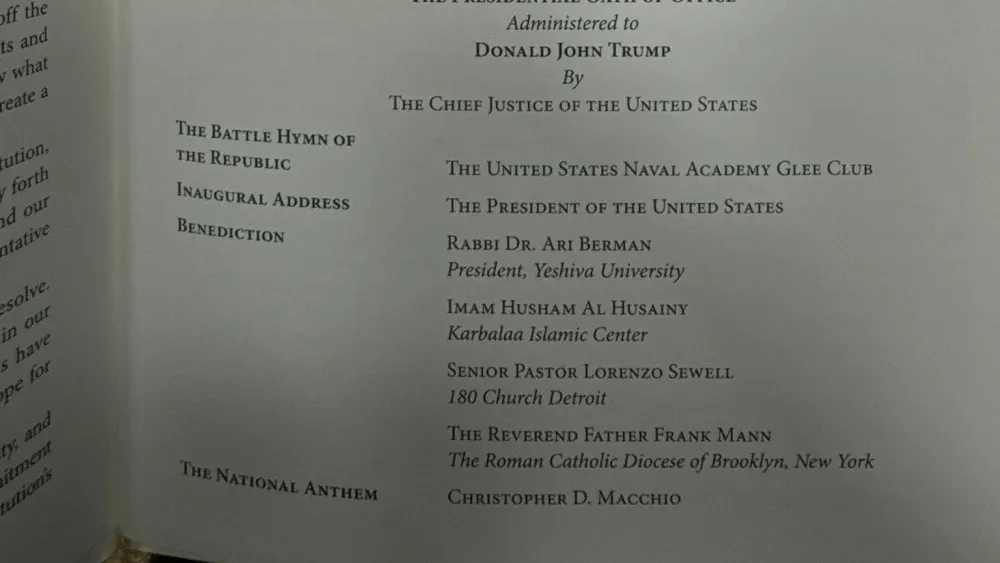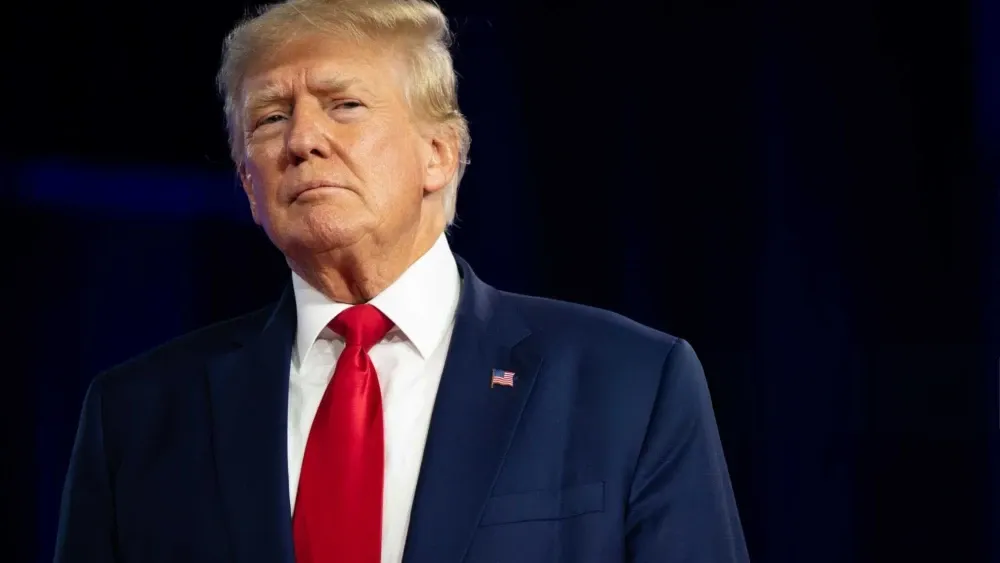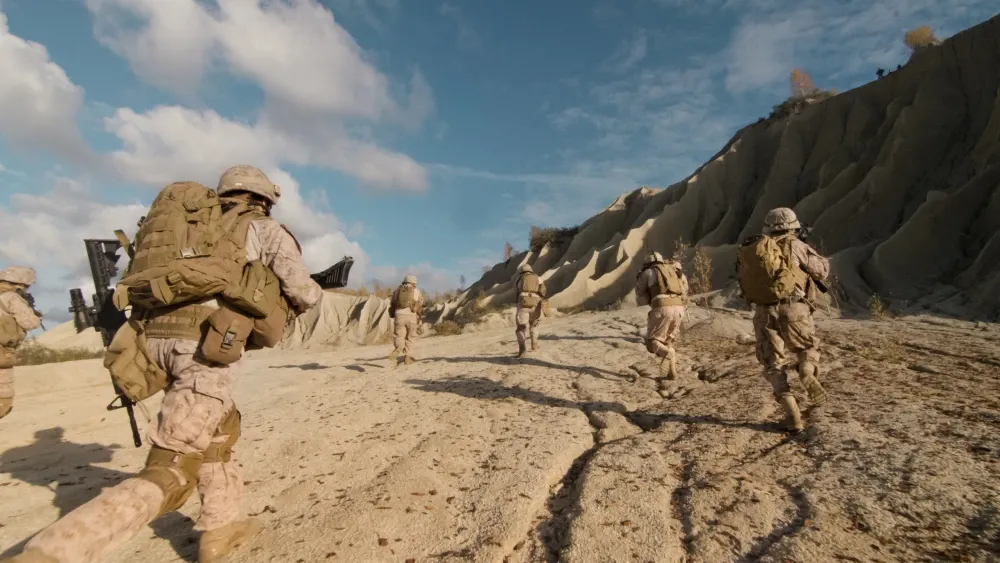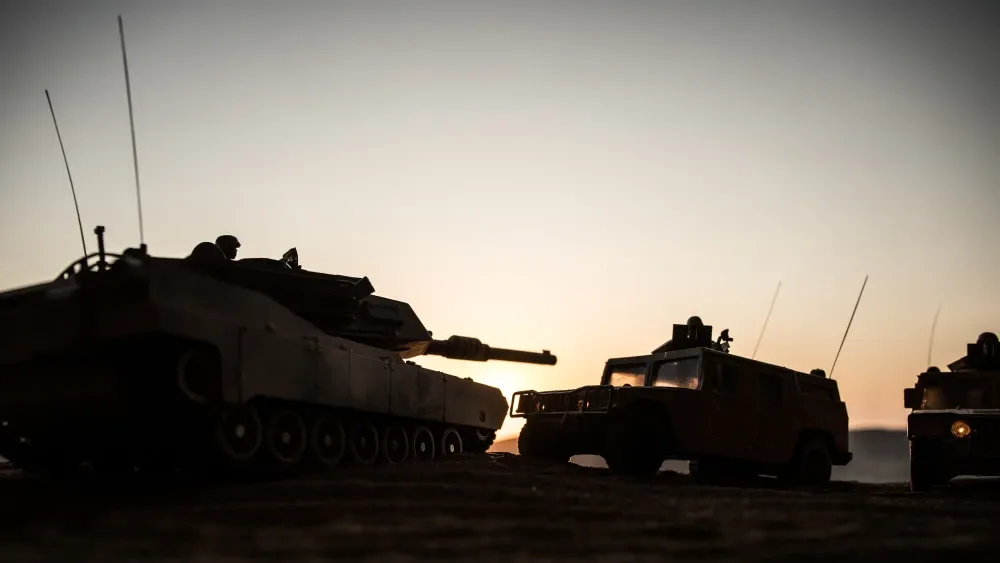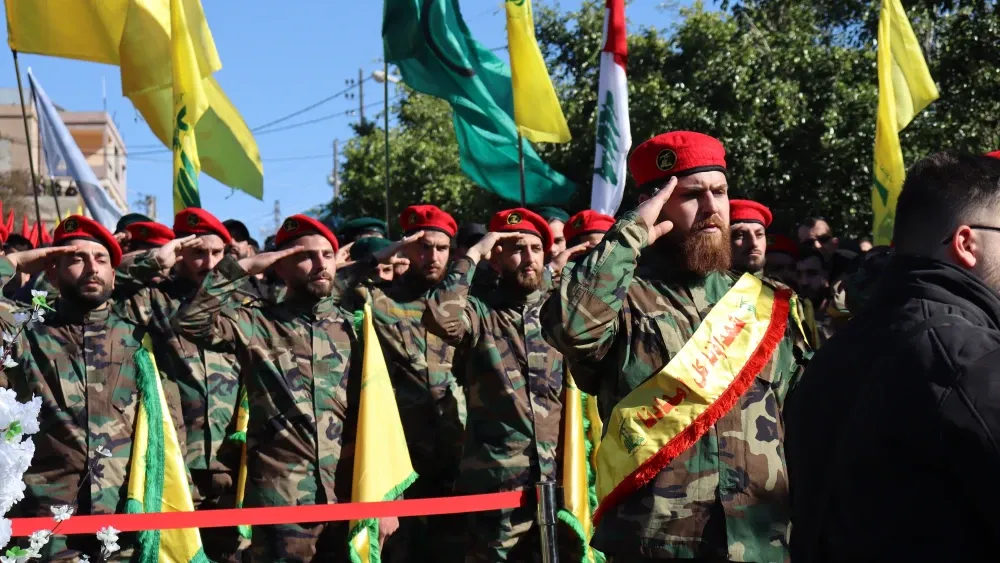| ||
 | ||
| MEF Dispatch: Inauguration Day and Its Global Implications By Winfield Myers ● Jan 17, 2025 Smart Brevity® count: 5 mins...1259 words With Inauguration Day drawing near, we take the opportunity to feature recent analyses of the challenges and opportunities that await the incoming Trump administration. Most immediately, we alert our readers that an antisemitic, pro-Hezbollah imam has been invited to deliver a prayer at the Inauguration. War being an ever-present danger, we next explore potential conflicts that the new president should be prepared to handle should they arise. We then feature several articles analyzing the possible repercussions of a hasty withdrawal from Syria or abandonment of Iraq, both of which could weaken our national security, undermine our regional allies, and strengthen our enemies. We next discuss the benefits of ceasing to treat faux allies like Qatar as the genuine article and warn against Russian influence in Sudan. Finally, our suggestions for further reading examine the “woke right” and the importance (again) of standing by the Kurds. | ||
Antisemitic, Pro-Hezbollah Imam Invited to Deliver Prayer at Trump InaugurationA Shia imam known for his antisemitic and pro-Hezbollah views is set to deliver a prayer at President Trump's inauguration. Why it matters: This invitation highlights the Trump campaign's increasing engagement with controversial Islamist figures, raising concerns about the administration's stance on extremism. Background: Husham Al-Husainy, imam of the Karbalaa Islamic Educational Center in Dearborn, Michigan, has a history of extremist rhetoric. In 2015, he hosted a rally advocating violence against Saudi Arabia and has consistently supported Hezbollah. What they're saying: In past interviews, Al-Husainy refused to label Hezbollah as a terrorist organization, sparking media criticism. The bottom line: By associating with figures like Al-Husainy, the Trump administration risks alienating key allies and further polarizing domestic politics. To read the full article, click here. | ||
The Wars That Could Define the Donald Trump PresidencyDonald Trump, during his first term, avoided involving the U.S. in new wars, but his second term may see conflicts shaping his presidency. Why it matters: Historical precedent shows that unexpected wars often define presidential legacies, and Trump might face similar challenges. Turkey and Syria vs. Kurds: Turkey's influence in Syria could release Islamic State prisoners, destabilizing the region and significantly shaping the Trump administration's policies. Azerbaijan vs. Armenia: Ongoing tensions in the Caucasus could escalate, testing Trump's diplomatic strategies and stance on regional conflicts. China's proxy wars in Africa: China's growing influence in Africa poses strategic challenges for the U.S., potentially affecting Trump's foreign policy approach. China vs. Taiwan: A potential Chinese invasion of Taiwan could force Trump to take decisive actions, influencing his legacy on global security issues. To read the full article, click here. | ||
No Repeat of Kabul: The Case Against a Hasty Syrian WithdrawalThe call to withdraw U.S. troops from Syria echoes past hasty exits that led to chaos, like Kabul in 2021. Why it matters: Withdrawing from Syria could embolden Turkey, release ISIS detainees, and destabilize the region, impacting global security. Strategic alliances: Abandoning the Kurds might drive them towards Russia or Iran, although both are unreliable allies given their history and domestic issues. America First: Maintaining a small U.S. presence aligns with an "America First" policy without resorting to isolationism, preventing extremist resurgence and protecting American interests. Lessons from history: Past premature exits in Iraq and Afghanistan led to extremist gains. A responsible, strategic approach is needed to avoid repeating these mistakes. To read the full article, click here. | ||
America Abandoning Iraq Only Helps IranThe debate over U.S. presence in Iraq intensifies as Iran's influence looms. Why it matters: With Iran's regional power waning, maintaining a U.S. presence in Iraq is crucial to prevent Tehran from consolidating control. Iraq's strategic role: Iraq remains a key ally for Iran, but Iraqi politics are more nuanced. Supporting Iraqi sovereignty can counter Iran's "Axis of Resistance." The Iran factor: As Iran's regional proxies falter, the U.S. has an opportunity to contain Iranian influence and support Iraqi nationalism. Strategic caution: A hasty withdrawal could destabilize the region, empower Iranian militias, and threaten U.S. interests in the Middle East. To read the full article, click here. | ||
It’s Make or Break for Christians Under Siege. Is Trump Ready?Christian communities face increasing threats globally, and U.S. policy could determine their survival. Why it matters: Trump has an opportunity to prioritize the defense of Christian minorities in his second term, countering previous administrations' inaction. Ethnic cleansing in Armenia: Azerbaijan's actions against Armenian Christians highlight a need for U.S. intervention to prevent further persecution. Nigeria's peril: The removal of Nigeria from the religious freedom watch list has led to increased violence against Christians, calling for renewed U.S. engagement. Middle East dynamics: Protecting Christians in the Middle East, where their numbers dwindle, will bolster U.S. credibility and uphold religious freedom. To read the full article, click here. | ||
Trump Should Strip Designation of Faux Major Non-NATO AlliesThe U.S. bestows major non-NATO ally status with significant privileges, but recent designations raise questions about their merit. Why it matters: The designation impacts U.S. foreign policy, with some countries acting against U.S. interests despite holding this status. Controversial allies: Qatar received the status despite supporting groups like Hamas and the Taliban, while Pakistan's ties with China and support for the Taliban also raise concerns. Call for reevaluation: President-elect Trump could strip current designations and implement stricter standards, inviting only deserving countries to reapply. Strategic partnerships: Countries like India and Saudi Arabia, with consistent support for U.S. interests, may benefit from a more rigorous approach to ally designation. To read the full article, click here. | ||
Trump Shouldn’t Repeat Reagan’s or Biden’s Mistakes with LebanonClumsy U.S. diplomacy in Lebanon risks undermining Israel’s military gains against Hezbollah. Why it matters: The U.S.'s current approach could inadvertently strengthen Hezbollah's position and tie Lebanon's fate to Syria's turmoil. Historical missteps: Past interventions have shown that shielding organizations like Hezbollah's can backfire, as seen in the 1982 PLO situation. Strategic misalignment: Recent U.S. actions suggest support for Iran's proxies in Lebanon, contradicting efforts to curb regional instability. A path forward: Trump should leverage Gulf Arab support to focus on Lebanese factions open to peace, demanding Hezbollah's decommissioning. To read the full article, click here. | ||
Trump Must Address Russia’s Sudan Naval Base ThreatRussia is eyeing Sudan for a strategic naval base, leveraging the country's turmoil to expand its influence. Why it matters: A Russian base on the Red Sea could threaten U.S. interests and destabilize the region, given Sudan's strategic importance. Strategic maneuvers: Despite setbacks in Syria, Russia is shifting focus to Sudan, aiming to outbid Saudi influence and solidify its presence. Potential repercussions: A Russian foothold could boost Moscow's regional power, adversely affecting U.S. diplomacy and security in the Middle East and Africa. Call to action: Trump and his team should prioritize countering Russian advances by reinforcing diplomatic ties and supporting Sudanese stability. To read the full article, click here. | ||
Further Reading:
| ||
| As we turn a page in American political history, MEF will strive to bring you rigorous analyses of the most important developments affecting the Middle East, America, and our allies. Watch this space for a steady stream of information to help you better comprehend changes that may lie ahead, from Washington, D.C., to Jerusalem, and from Damascus to Tehran. Sincerely, | ||
| Was this edition useful? Your responses are anonymous | ||
| Powered by | ||
| ||

